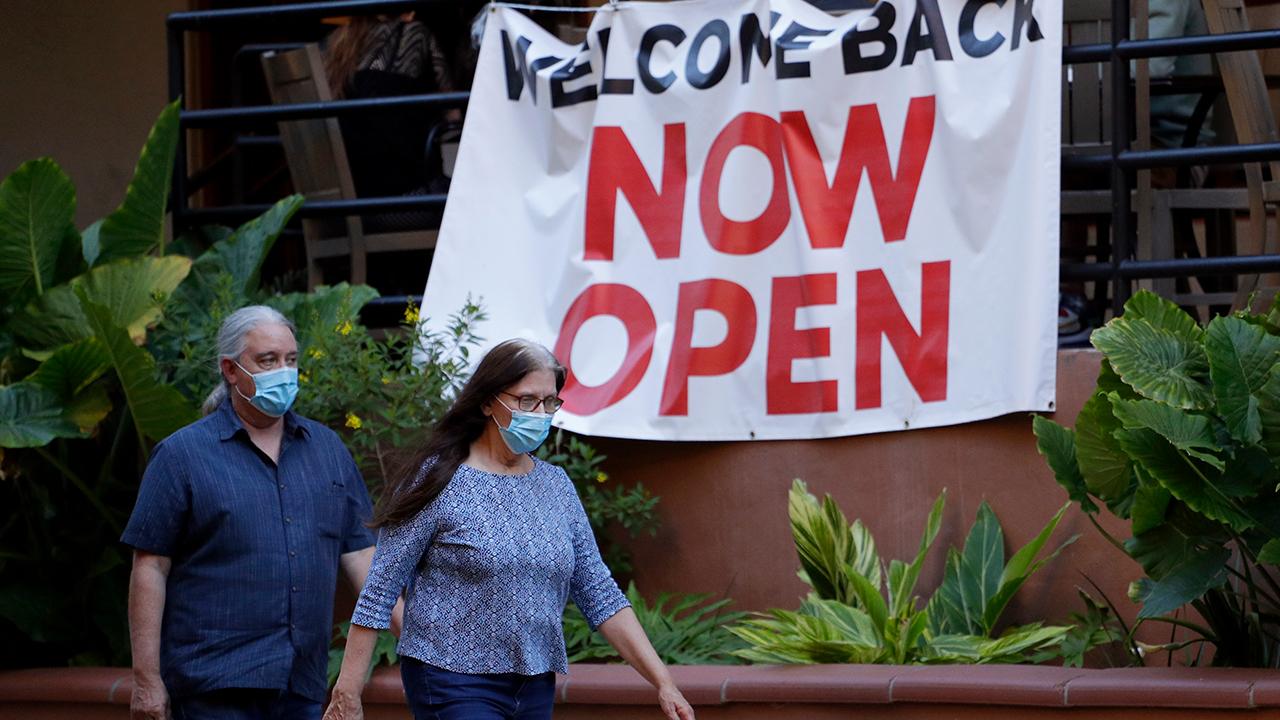White House mulls more coronavirus relief: Here's what it could include
Trump has repeatedly said that he wants to see a payroll tax cut included in virus relief efforts
President Trump is meeting with members of his economic team this week to explore different stimulus measures to include in what will likely be the final coronavirus relief package, according to a senior administration official.
So far, Congress has passed four massive stimulus packages totaling nearly $3 trillion to blunt the economic pain from the virus outbreak. That includes the $2.2 trillion CARES Act signed into law at the end of March, which sent one-time payments of up to $1,200 to Americans who earn less than $99,000.
UNEMPLOYED AMERICANS WOULD RECEIVE $1,200 BACK-TO-WORK BONUS IN NEW REPUBLICAN BILL
But lawmakers on both sides of the aisle have agreed that another round of aid is likely necessary to help American businesses and workers recover from the unprecedented economic shutdown.
Trump has repeatedly said that he wants to see a payroll tax cut, which is a measure that's still a priority for him, according to the official.
All employees and employers pay a 6.2 percent payroll tax on wages capped out at $137,700. Right now, an employee earning $50,000 a year would pay $3,100 in payroll tax. That money goes toward specific programs like Social Security, health care, unemployment compensation and workers’ compensation. Workers also pay a Medicare tax of 1.45 percent. Critics of the proposal, however, say reducing -- or eliminating -- payroll taxes would not benefit out-of-work Americans who need the most help.
Trump is also expected to look into liability protections for businesses reopening during the outbreak as well as tax deductions or write-offs for individuals who take a vacation during a defined period of time.
WHAT HAPPENS TO YOUR UNEMPLOYMENT BENEFITS IF YOU REFUSE TO GO BACK TO WORK?
The White House is also considering pushing for reforms to unemployment benefits. The CARES Act expanded unemployment by an extra $600 per week through the end of July; however, some Republicans have since voiced concern that the sweetened pot of money is actually discouraging workers from returning to their jobs.
Roughly two-thirds of workers on unemployment are earning more from the government aid than they did at their old job, according to a paper written by economists at the University of Chicago's Becker Friedman Institute.
Once the $600-per-week expires at the end of July, the typical unemployment check, which varies by state, will return to below $400 per week.
CONGRESS HAS FUNNELED TRILLIONS TO CORONAVIRUS RELIEF. WHERE IS THAT MONEY GOING?
Last week, White House economic adviser Larry Kudlow endorsed a back-to-work bonus for unemployed Americans returning to their jobs, an alternative to the extra $600-a-week in benefits backed by most Democrats.
"We've got to reward individuals for coming back to work," Kudlow said during a "Fox & Friends" interview. "There will be some kind of re-employment bonus. We're not going to go to the $600, that's a disincentive to work."
More than 40 million Americans have lost their jobs as a result of the coronavirus-induced economic shutdown, a rate unseen since the Great Depression. The nation's unemployment rate surged to 14.7 percent in April, and likely ballooned to at least 20 percent in May.
FOX Business' Blake Burman contributed to this report




















